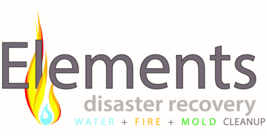Water damage is one of the most pernicious and expensive types of damage a home can endure: A single leak can travel through a house and cause widespread damage, along with serious problems like mold growth that can require extensive repairs.
The best solution is a great defense against water damage – but how do you prepare? Here are several practices that will help keep your home safe.
Keep Your Gutters Clean
Over time – especially during the fall months – gutters can become filled with leaves, needles, and sediment. If those gutters aren’t cleaned, they can overflow when heavy rains come. This may not seem like a serious issue, but that overflowing water is in the perfect spot to seep behind your siding and into your foundation. Serious water
Check Your Drainage
Your gutters should always drain into a safe spot that is at least several feet away from your foundation, and the water should not be dumped on a slope that will just send it back to the house. Your foundation can be
Be Careful When Planting
When planting and landscaping, remember how plants will affect your home in the years to come. Will trees grow tall enough to shed leaves on your roof, creating potential leaks and clogging gutters? Then you may want to plan on planting trees farther away. Likewise, remember that shrubs and trees have deep, powerful roots that can damage concrete foundations over time. Don’t plant these large
Treat Your Drains Right
Other water damage can be caused by clogs in your drains. Fortunately, a few best practices make this unlikely: Never wash grease down the drain, where it can linger for years and build up a fatty clog. Only flush waste and toilet paper down the toilet. If you experience a clog, skip the drain cleaner – which can damage your pipes –and call up a professional to use a toilet snake to safely remove the problem.
Set Up a Leak Detector
A leak detector is a smart sensor that can detect leaks when they start and send an alert to your phone so you know there may be a problem. They are an excellent warning system for basements, crawlspaces, attics, and other areas where you may not immediately notice a problem.
Do you have any questions about repairing damage from a particular event, or protecting your home more effectively from common hazards in your area? We can help! Contact Elements Disaster Recovery and we can answer all your questions.

